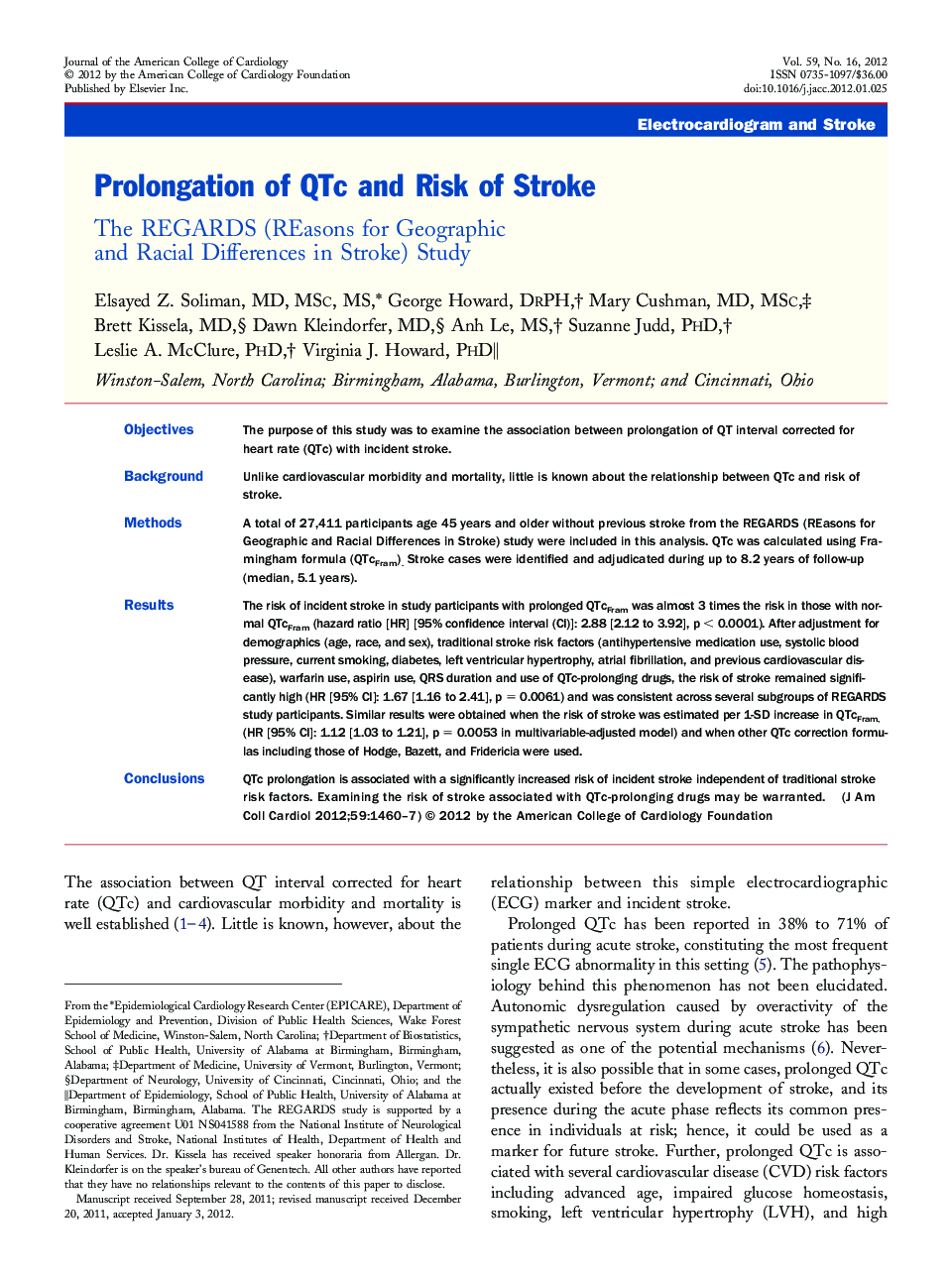| کد مقاله | کد نشریه | سال انتشار | مقاله انگلیسی | نسخه تمام متن |
|---|---|---|---|---|
| 2946965 | 1577215 | 2012 | 8 صفحه PDF | دانلود رایگان |

ObjectivesThe purpose of this study was to examine the association between prolongation of QT interval corrected for heart rate (QTc) with incident stroke.BackgroundUnlike cardiovascular morbidity and mortality, little is known about the relationship between QTc and risk of stroke.MethodsA total of 27,411 participants age 45 years and older without previous stroke from the REGARDS (REasons for Geographic and Racial Differences in Stroke) study were included in this analysis. QTc was calculated using Framingham formula (QTcFram). Stroke cases were identified and adjudicated during up to 8.2 years of follow-up (median, 5.1 years).ResultsThe risk of incident stroke in study participants with prolonged QTcFram was almost 3 times the risk in those with normal QTcFram (hazard ratio [HR] [95% confidence interval (CI)]: 2.88 [2.12 to 3.92], p < 0.0001). After adjustment for demographics (age, race, and sex), traditional stroke risk factors (antihypertensive medication use, systolic blood pressure, current smoking, diabetes, left ventricular hypertrophy, atrial fibrillation, and previous cardiovascular disease), warfarin use, aspirin use, QRS duration and use of QTc-prolonging drugs, the risk of stroke remained significantly high (HR [95% CI]: 1.67 [1.16 to 2.41], p = 0.0061) and was consistent across several subgroups of REGARDS study participants. Similar results were obtained when the risk of stroke was estimated per 1-SD increase in QTcFram, (HR [95% CI]: 1.12 [1.03 to 1.21], p = 0.0053 in multivariable-adjusted model) and when other QTc correction formulas including those of Hodge, Bazett, and Fridericia were used.ConclusionsQTc prolongation is associated with a significantly increased risk of incident stroke independent of traditional stroke risk factors. Examining the risk of stroke associated with QTc-prolonging drugs may be warranted.
Journal: Journal of the American College of Cardiology - Volume 59, Issue 16, 17 April 2012, Pages 1460–1467